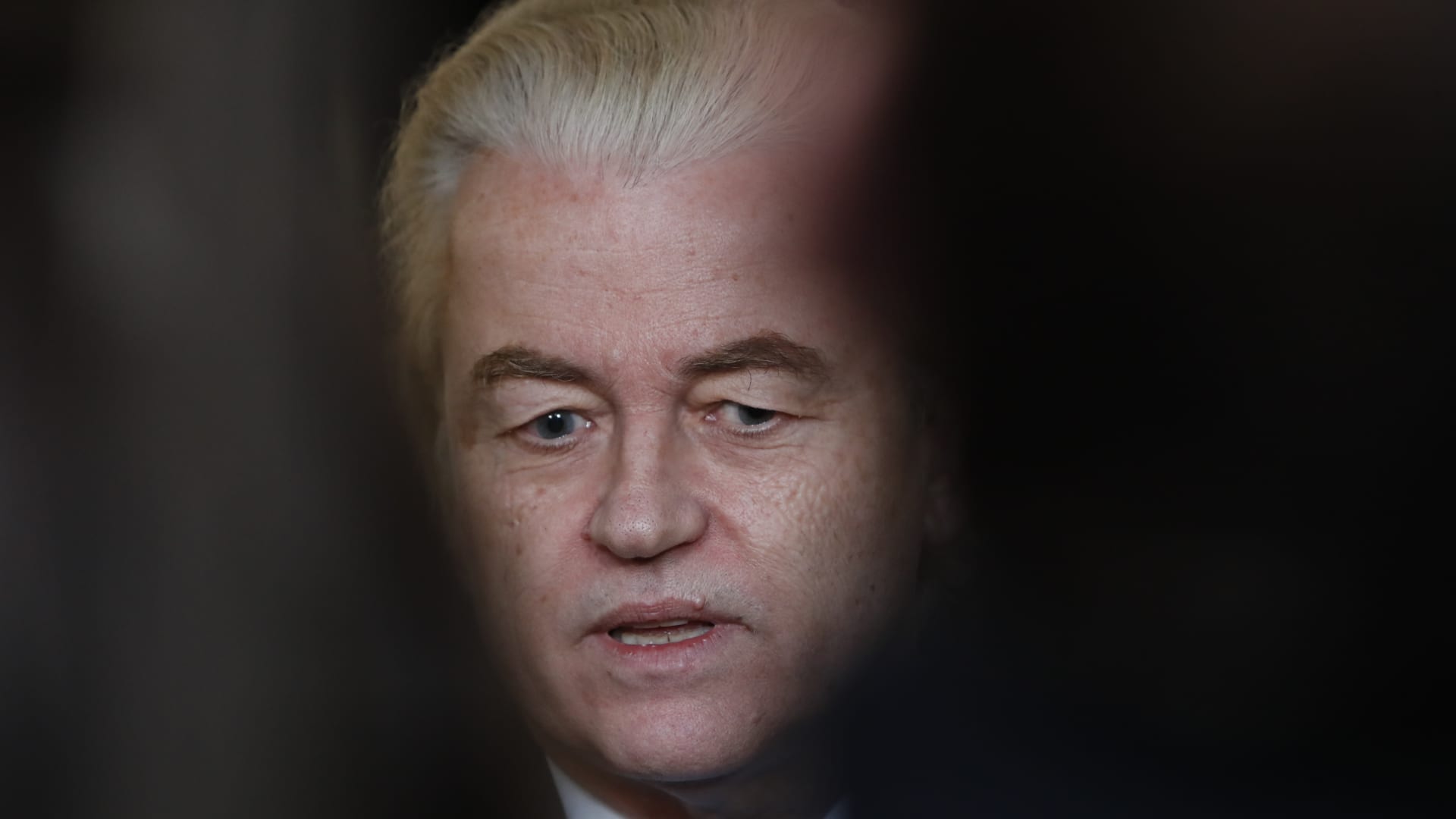Leader of the Netherlands’ Party for Freedom (PVV), Geert Wilders.
Anadolu | Getty Images
LONDON — Far-right Dutch lawmaker Geert Wilders’ hopes of becoming prime minister of the Netherlands are dwindling after coalition talks fell into disarray Tuesday.
Pieter Omtzigt, founder and leader of the upstart center-right New Social Contract (NSC), walked away from negotiations, vexing Wilders’ efforts to assemble a working alliance for his Party for Freedom (PVV) following its shock victory in the Netherlands’ November general election.
Wilders took to social media Tuesday evening to berate Omtzigt’s withdrawal, calling the decision “incredibly disappointing.”
“The Netherlands wants this cabinet and now Pieter Omtzigt is throwing in the towel while we were still in discussions until today. I don’t understand it at all,” Wilders wrote in a post on X, according to a Google translation.
Dutch media reported that Omtzigt, whose party won 20 seats in November on a campaign of “good governance” and “doing politics differently,” had been shocked by confidential Cabinet briefings on the state of public finances.
In a letter posted to X, Omtzigt said it was clear that PVV and NSC have “different financial expectations” for the years ahead.
“Under no circumstances does NSC want to make promises to Dutch people, which it knows in advance are empty promises that cannot be kept during the coming cabinet period. You don’t build social security with castles in the sky,” he said.
Wilders, who won a quarter of the vote in the election, has been negotiating with the NSC, the center-right VVD of outgoing Prime Minister Mark Rutte and the farmers’ protest party BBB since late November, without giving any sign that a deal was close.
BBB leader Caroline van der Plas described the collapse in talks as a “total surprise,” noting they had been progressing constructively until now.
However, former Labor Party minister Ronald Plasterk, who has been leading the talks, earlier flagged finances as a major sticking point in discussions. That comes after the Dutch central bank said the incoming coalition would have to find around 17 billion euros ($18.3 billion) in structural spending cuts in order to keep public finances steady, Reuters reported.
Wilders — an anti-immigration euroskeptic who has called for a “Nexit,” or Netherlands exit from the European Union — has previously voiced his resistance to large spending cuts, instead pledging to lead a government of lower taxes.
His surprise November victory sent shock waves across Europe, where far-right parties have been making gains ahead of European Parliament elections in June on the back of rising discontent over immigration, green policies and the cost-of-living crisis.
Still, the disagreement with his largest potential coalition partner could leave the PVV unable to form a majority in the Netherlands’ 150-seat lower legislative body.
If Wilders fails to form a government, Plasterk could decide to turn to the runner-up, the Labour-Green alliance led by former EU Commissioner Frans Timmermans. Alternatively, if no combination of parties can agree to form a coalition, a new election could be called.
Omtzigt said in his letter that he would be willing to support a minority government, likely consisting of the three parties now left at the table.

